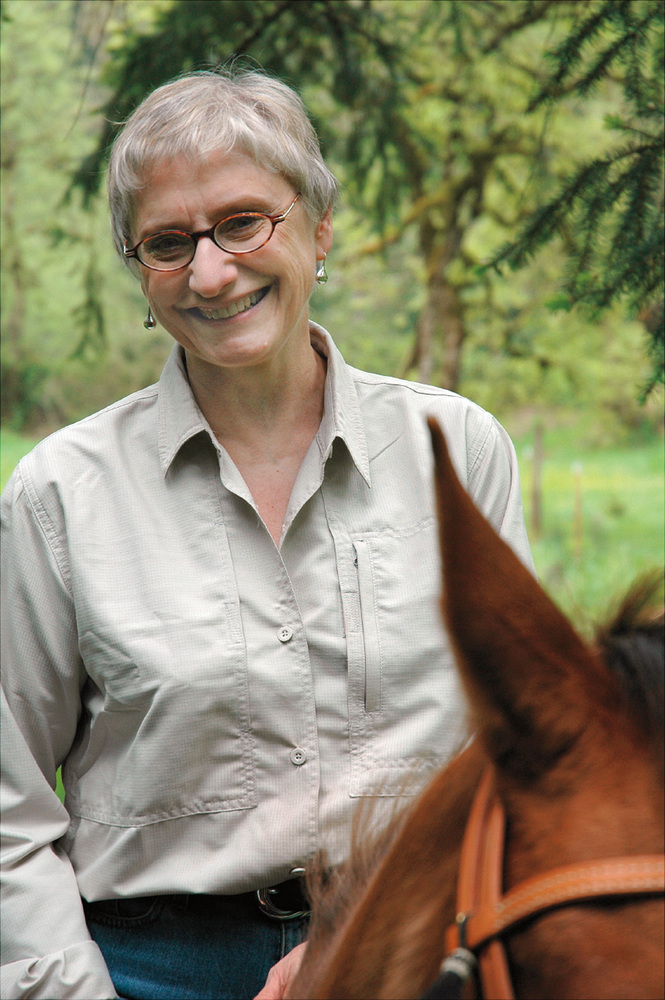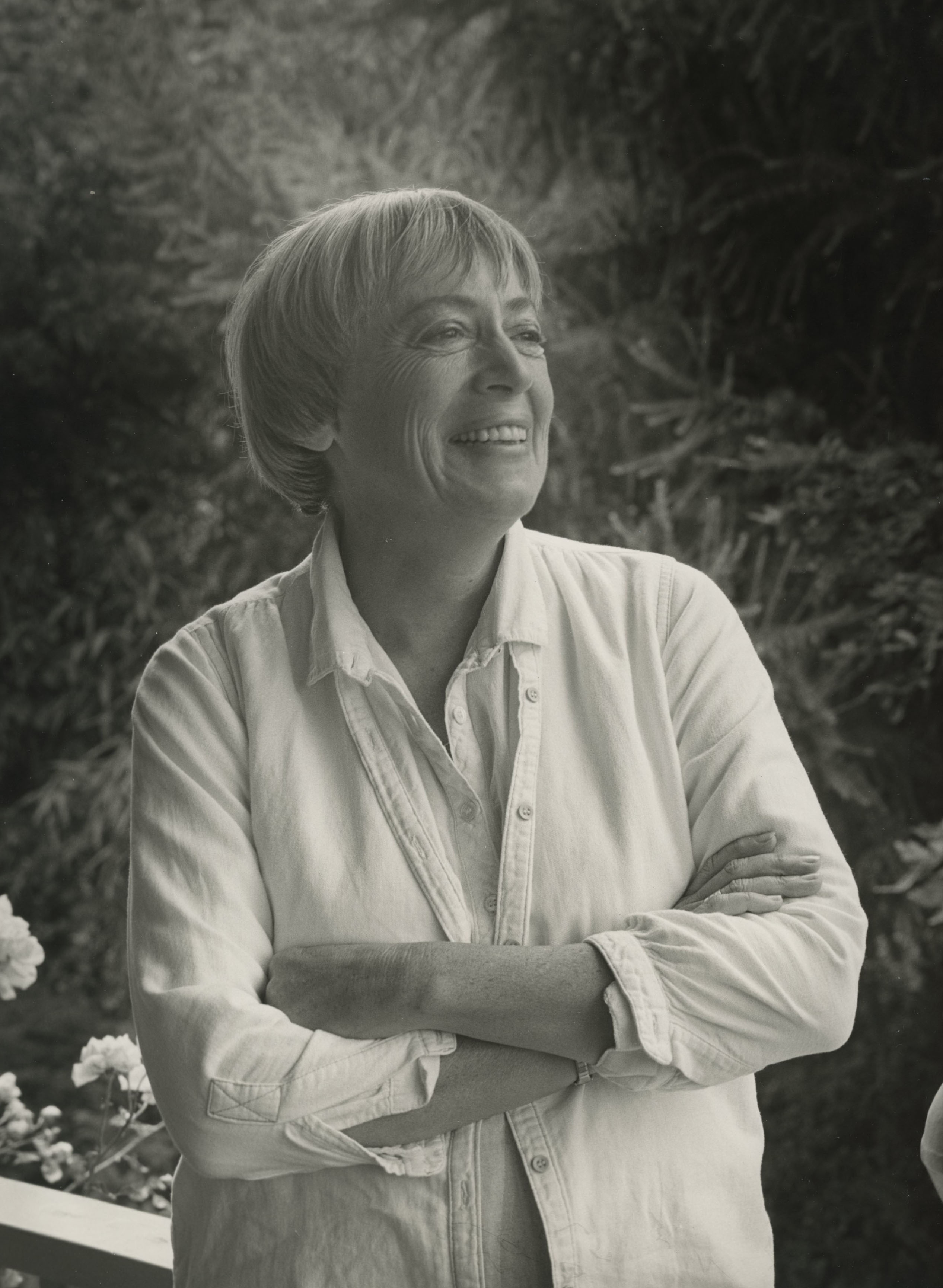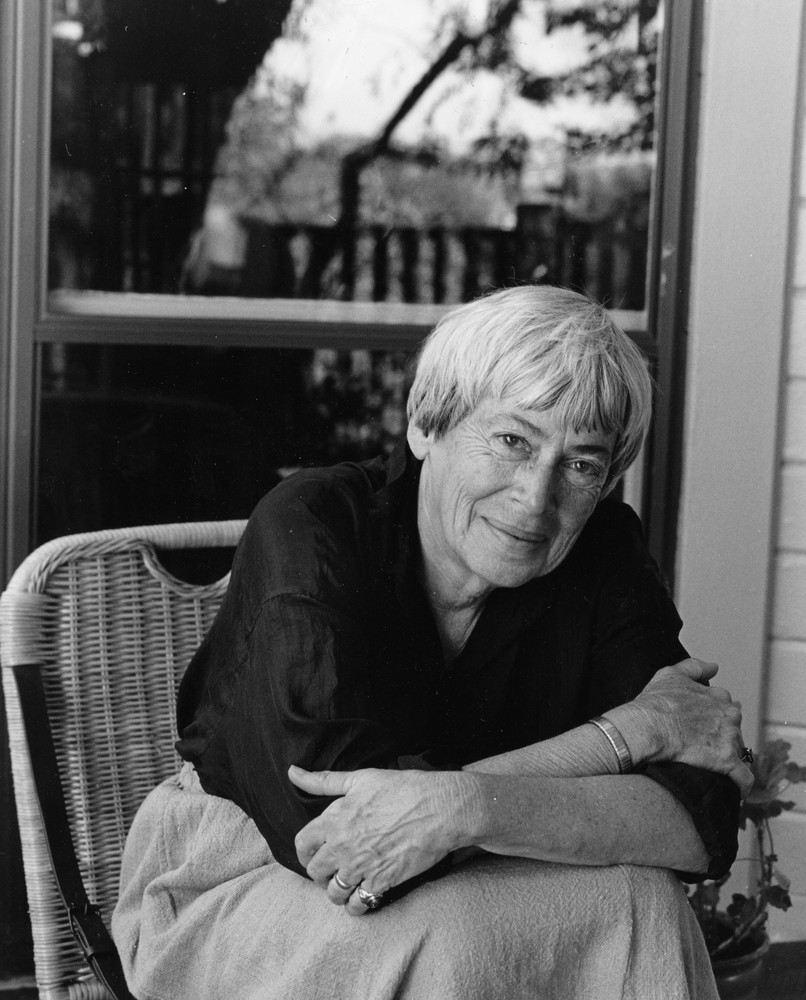Molly Gloss, prize-winning novelist and short-story writer, was born in 1944 and has lived in and near Portland all her life. As a child, she benefited from family trips through the West, her father's collection of westerns, and the Multnomah County Library. She studied history and English at Portland State College (now Portland State University). First a teacher, then a clerk, she became a full-time writer in 1980, balancing her work with marriage and motherhood. The next year, she met writer Ursula K. Le Guin, who encouraged Gloss in her writing and helped her find a literary agent.
In addition to short stories (Unforeseen, 2019), Gloss has written a novella for young people and five full-length adult fictions. Women's lives are one of her abiding interests, whether in distant galaxies or in the turn-of-the-twentieth-century Northwest. Her women characters work as much and at least as well as men, showing initiative and endurance. They are remarkably original in their solutions, whether as novelists, screenwriters, horse-gentlers, or workers in outer space. Most of her male characters are strong and patient but also tough. In Gloss’s work, toughness is not a gendered but a western virtue. She feels a particular debt to her great grandmothers, four “westering women,” and infuses all of her work with western themes and issues.
For her work, Gloss researches the cultural and historical milieux of her factually based novels, explores their locations, and studies the skills her characters possess. For The Hearts of Horses (2007), for example, she learned to ride a horse and took instruction on how to gentle wild or frightened horses. For its sequel, Falling from Horses (2014), she researched the lives of westerners working as Hollywood extras in the late 1930s and the ruthless exploitation they and their horses suffered. Gloss’s science fiction reveals detailed knowledge of technology, cosmology, and human nature.
Like other western writers, Gloss emphasizes landscape in her writing—the Northwest woods, ranching or riverine estuary country, and a bleak and distant planet. Her work also shows a developing concern with relations between humans and other species. In her novella, Outside the Gates (1986), a young boy has powers of communication with other animals, and The Jump-Off Creek (1989) gives mules individual characters. The species of her science fiction novel, The Dazzle of Day (1997), are imperiled; and the human characters, diverse and individual in many ways, share a deep sense of ecological responsibility. In Wild Life (2000), Gloss questions the boundaries of human/animal identity. Gloss’s implication is that all life is interconnected, changing, and within the compass of the writer’s craft.
Gloss’s novels show a keen and accurate interest in technology and social history. As farming and ranching techniques change, her characters are affected by mechanization and the invention of the bicycle, the tractor, and the automobile, but also by the intrusions of global depression and world war. She presents a true, working West, replacing stereotypes with portraits of working westerners, often women, and creating mythic realities that ask her readers to share her concern for the environment and its inhabitants. The strength of her prose and her talent as a storyteller have made her one of the foremost writers of literary fiction about the West, and the dramatization of universal themes in her work has been an important contribution to the art of fiction. Gloss is the recipient of several awards including an Oregon Book Award and two Pacific Northwest Booksellers Awards.
-
![Molly Gloss.]()
Gloss, Molly, on horseback.
Molly Gloss. Courtesy http://www.mollygloss.com/press.html



